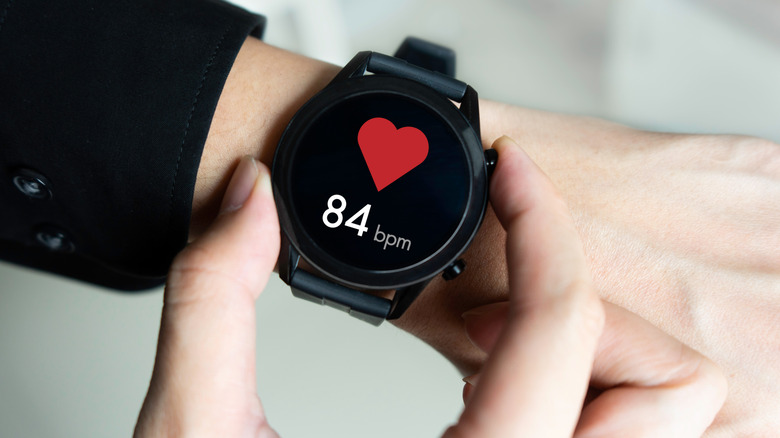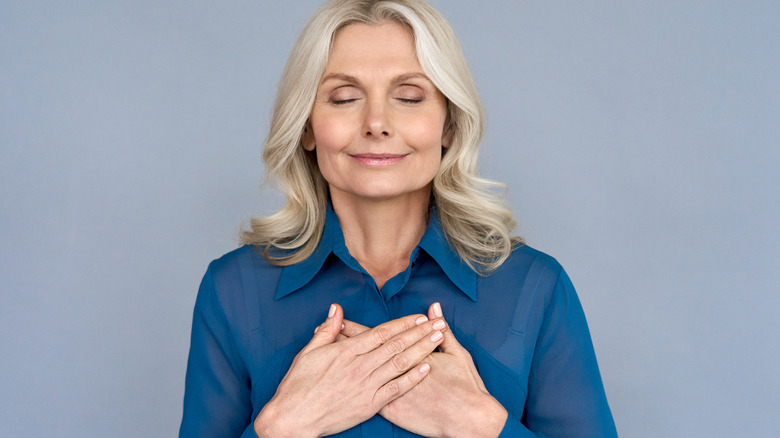The First Thing You Should Do When Your Heart Rate Gets Too High
Many of us associate an increase in heart rate with exercise, but did you know there are a number of other external factors that can cause an uptick in our beats per minute? According to WebMD, when in a resting state, our hearts generally beat between 60 to 100 times every minute. While the exact number will vary from person to person, our heart rate will also vary by level of activity. When exercising, our heart produces up to four times more blood in order to supply our muscles with the oxygen needed while in motion (via University of Michigan Health). This process, known as cardiac output, causes our heart to beat at a faster pace. Aside from exercise, our heart rate can also increase as a response to stimulants such as caffeine, increased levels of humidity, certain medications, or stress (via WebMD).
To measure your heart rate, you'll want to locate your pulse. This can most easily be done by playing the tops of your fingers along either the inside of your wrist, neck, elbows, or feet, and applying light pressure on the area. Count the number of beats you experience within 10 seconds, multiply the number by 6, and you will have calculated your heart rate, according to WebMD.
So how do we know when our heart rate is too high and what can we do to respond to it in the moment?
Relaxation is key
When you exceed a heart rate of 100 beats per minute, it's classified as tachycardia (via MedicineNet). However, each person has their own individual maximum heart rate. Pushing your heart beyond your maximum heart rate is not safe, but that stopping point will be different for everyone, especially if you live a particularly active lifestyle. To calculate your maximum heart rate, start at the number 220 and subtract your age. These calculations reveal that those who are 20 years of age should be careful not to exceed 200 beats per minute, while someone 40 years of age will have a maximum heart rate of 180 beats per minute, and someone at the age of 70 will want to keep their heart rate below 150 beats per minute.
Should you experience a sudden unexpected spike in heart rate due to stress, you'll want to do your best to keep your body relaxed (via Medical News Today). Deep breathing, stretching, or a warm shower can all help reduce one's heart rate in the moment. Engaging in these practices on a regular basis may also strengthen your ability to stay within a healthy heart rate when exercising.
Should you discover that your pulse is abnormally low or you find yourself having irregular spikes in heart rate, the American Heart Association (AHA) advises consulting with your doctor, especially if these symptoms are accompanied by dizziness or faintness.


